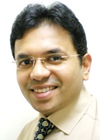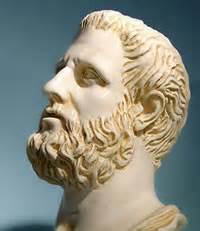SICOT e-Newsletter
Issue No. 55 - April 2013
History of Orthopaedics
 Hippocratic Oathâ¦Â  A pledge, The journey, Our destiny (Part 1)
Hippocratic Oathâ¦Â  A pledge, The journey, Our destiny (Part 1)
Hitendra K. Doshi
SICOT National Delegate of Singapore
Historians agree that Hippocrates was born on the Greek island of Kos around 460 BC. According to Soranus of Ephesus, his father was a physician named Heraclides. He learned medicine from his father and attended the healing temple of Kos also known as Asclepeion to honour the Greek god Asclepius. His work had been mentioned by other physicianâs at the time such as Plato and Galen. Many of his contributions in medicine still hold true today. He described clubbing of the fingers in patients with chronic lung disease. He also described a technique to reduce shoulder dislocation which was known as the Hippocrates method. But his most well known contribution to the field of modern medicine is the Hippocratic Oath.
 "I swear by Apollo, Asclepius, Hygieia, and Panacea, and I take to witness all the gods, all the goddesses, to keep according to my ability and my judgment, the following Oath.
"I swear by Apollo, Asclepius, Hygieia, and Panacea, and I take to witness all the gods, all the goddesses, to keep according to my ability and my judgment, the following Oath.
To consider dear to me, as my parents, him who taught me this art; to live in common with him and, if necessary, to share my goods with him; To look upon his children as my own brothers, to teach them this art.
I will prescribe regimens for the good of my patients according to my ability and my judgment and never do harm to anyone. To please no one will I prescribe a deadly drug nor give advice which may cause his death. But I will preserve the purity of my life and my arts.
I will not cut for stone, even for patients in whom the disease is manifest; I will leave this operation to be performed by practitioners, specialists in this art.
In every house where I come I will enter only for the good of my patients, keeping myself far from all intentional ill-doing and all seduction and especially from the pleasures of love with women or with men, be they free or slaves.
All that may come to my knowledge in the exercise of my profession or in daily commerce with men, which ought not to be spread abroad, I will keep secret and will never reveal.
If I keep this oath faithfully, may I enjoy my life and practice my art, respected by all men and in all times; but if I swerve from it or violate it, may the reverse be my lot."
- Hippocrates
The Hippocratic Oath is one of the oldest binding documents in history traditionally taken by medical practitioners. It is widely believed that the oath was written by Hippocrates, the âfather of medicineâ, in the 4th century BC. Written in antiquity, its principles are held sacred by doctors to this day. No doubt the medical world has witnessed huge scientific, economic, political, and social changes. Nevertheless, it is interesting to note that "The Oath of Hippocrates" holds the American Medical Association's Code of Medical Ethics (1996 edition). Although modified in 1964 by Louis Lasagna, Academic Dean of the School of Medicine at Tufts University, to a commonly used âmodern versionâ of the oath, and a NOVA translation much earlier known as the âclassical versionâ, it cannot be denied that the fundamental message is deeply rooted from the original version of the Hippocrates oath in Greek.
With this in mind, it proves that there must be an inherent noble essence laid down by the âFather of Medicineâ which doctors cannot separate from, either consciously or unconsciously. Hippocrates is regarded as the âFatherâ of medicine because of the words of guidance and wisdom which has led to the manifestation of our medical practice. Hence, it will be apt to say that we are his âchildren of medicineâ which unfolds a unique bond that doctors inherently have with their âfatherâ. That bond is established the moment the oath is taken and it is maintained by practice thereafter. In order to make a conscious effort of putting the âoathâ into action, the significance of the oath has to be shelled out in layers and reflected upon. As one fathoms the depths of each line of the oath, it prods our inner conscience and forces us to think why we took the oath in the first place or was it merely as a ritual to uphold tradition. Deeper contemplation of the oath itself should evoke in our mind and belief that it is a noble solemnization of our birth as a doctor with âloveâ being our religion and âhumanityâ being our cast. Not going astray from the fundamental human values so beautifully laid down in the oath by Hippocrates, it is beyond doubt that doctors are destined to be noble souls, if they tread the righteous path laid down by the founding father of medicine.
The first sentence of the oath reads, âI swear by Apollo, Asclepius, Hygieia, and Panacea, and I take to witness all the gods, all the goddesses, to keep according to my ability and my judgment, the following Oathâ. Hippocrates clearly enlightens us that the first and foremost virtue is to give dignity to the oath. It is likened to a child making a promise to his mother and doing all he can to uphold that promise to please his mother. Making an oath in such a manner introduces a sense of âsacrednessâ as it is being made to their ancient Greek gods and goddesses. Furthermore, it takes witness of all other superiorities regarded as gods and goddesses, ensuring that the pledge is known to all which adds grandeur and commitment to the oath taken. This clearly demonstrates an appreciation of a higher or more supreme force other than man himself. The value of âhumilityâ is exemplified and makes one realize that man as a doctor is merely an instrument to ensure the well-being of humanity. Having laid the fundamental sacredness of the oath with humility, Hippocrates goes on further to unveil the basic human values portrayed in the oath which are the pillars of the profession.
The value of âpure loveâ is clearly expressed in the second line which reads âTo consider dear to me, as my parents, him who taught me this art; to live in common with him and, if necessary, to share my goods with him; to look upon his children as my own brothers, to teach them this art.â To be able to consider others to be as dear, to be able to accept others in totality just as you accept yourself and your own dear ones, and to be able to share with others just as you would do with your own ones, reflects âselflessnessâ and âequanimityâ. Hippocrates enlightens us on the noble quality of âexpansion of loveâ that will develop the attitude of selflessness which is free from attachment, expectation, selfishness and greed. Love that embraces all people regardless of creed, community or language portrays the spirit of equanimity and hence making it pure in nature. Thus, it is beyond doubt that âpure loveâ is the most charming quality a doctor can have and hence the nobility of the profession.
Adopting the virtue of pure love based on the oath, is the catalyst in developing the attitude of carrying out duty with devotion. With such love, a smile will shine spontaneously and words will always be soft, sweet and tender. Such charisma will inject courage and happiness to patients and restore mental and emotional well being. Having understood the necessity to develop the mindset of universal love and to deliver the spiritual medicine of pure love, only then will pharmacological medication and surgical intervention augment and complete the treatment rendered to ensure well-being. This fundamental point is evident when one analyses the chronology of the values and guidance that unfold in the oath. It drives a point that âpure loveâ is a prerequisite and of paramount importance before we venture further into the correct use of science and technology which is mentioned in the next phrase.
Hippocrates continues guiding us in the following phrase that readsâ¦âI will prescribe regimens for the good of my patients according to my ability and my judgment and never do harm to anyone. To please no one will I prescribe a deadly drug nor give advice which may cause his death. But I will preserve the purity of my life and my arts.â. Contemplating on this phrase reveals yet another powerful human value of ârighteousnessâ. Hippocrates emphasizes on doing good for the patient. It reflects a genuine intention but yet at the same time the good has to be done based on judgment and ability without any traces of harm. This statement makes a point that doctors cannot be mechanical in nature when carrying out a particular treatment or surgical procedure. Instead, there is a need to reflect and analyze, which is a mental process with effort, guided by the notion of causing no harm to anyone including the patient and the doctor himself. On the same note âdeathâ as mentioned in the oath does not merely refer to harm afflicted on the physical body. It can also be read to refer to the downfall of the emotional, mental, and spiritual aspects of health. We often resort to a âjudgment callâ and decisions are made to determine our prescription of choice. Nevertheless, the message deeply rooted in the oath teaches us to make the âcall of discriminationâ based on the right principles before me make such a âjudgment callâ to ensure purity of the profession.Â
To be continued in the next issue of the SICOT e-Newsletter.  Â